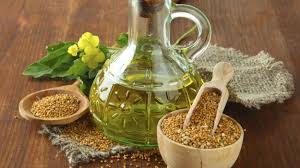Joint pain is something which can affect many people across the world and it is something that you don’t really want to have to live with. It can be quite an onerous burden which stops you from living your day to day life. Joint pain is commonly associated with Arthritis, a condition where the joints can become inflamed and swollen, causing bones to rub against each other and induce a lot of pain. Joints can also become creakier as they lose their suppleness and become a little less flexible and more brittle. There are many treatments for them but here are 5 of the best home remedies for dealing with joint pain.
5. Rubbing joints with olive oil
This may seem like something which is quite outside of the box and could be seen by many as blue skies thinking. However, there is no doubt that this actually works. As previously mentioned, joints can become very stiff and seize up from the Arthritis which they are afflicted with. Exercise can be an effective antidote to this but you need something else to smooth the whole process along. This is where olive oil comes in. It acts as a lubricant to the muscles and gets them not to seize up and actually become a little more flexible again and aid movement. Extra virgin olive oil is apparently the best type of oil to use for this sort of home remedy as it contains a lot of anti-inflammatory compounds and enzymes which protect joints from further damage. This is quite a viable cure, particularly if it is applied twice a day.
4. Exercise
This may sound like one of the simplest cures to take but there is no doubt that it actually works although you have to be careful with the type of exercise that you do. Heavy weight-lifting activities and impact sports are not the ones you want to be taking part in. Yoga is quite a good activity to do, as it burns plenty of calories whilst strengthening the body all over and it does keep muscles taut and in good shape. It is fairly low intensity as well which another plus of it is yet. Cardiovascular pursuits like running, walking and cycling are all good options as they build muscle and keep the core going. Perhaps another benefit of exercise is the way that it improves the mood of a patient. Arthritis is commonly linked with depression and bouts of anxiety and the endorphins and serotonin (the happy chemical) released by exercise should combat and negate these effects sufficiently.
3. Eating more turmeric and ginger
Again this a definite treatment which will work as both of these spices are anti-inflammatories and can help regulate the immune system. Turmeric in particular is well-renowned for speeding up the metabolism of sufferers and help those who have Arthritis keep their weight in check and their body mass index at the right level. Furthermore, ginger has been shown to be a natural healer on many occasions and also it regulates and purifies the immune system from the toxins which often come hand in hand with Arthritis so that is one less thing to worry about. They both taste really good too.
2. Taking a magnesium supplement
Magnesium is something which is essential for every single human body, but it is something we cannot make ourselves. However, you could take it in capsule form and it will have quite a relaxing effect on you. It has been demonstrated in several scientific studies that magnesium can actually alleviate muscle pain by relaxing the muscles and the nerves. It helps bones to keep their structure and keeps Arthritis at bay.
1. Dandelion leaves
Another of nature’s great anti-inflammatories, dandelion leaves can repair damaged tissue and keep toxins out of the blood. They could be ingested in a paste or a cup of dandelion tea.
Conclusion
There are many treatments for type of Arthritis which can be made at home and they can be quite effective in treating Arthritis in the majority of sufferers, young and old.
Reference:
“Dynamization and Dilution”, Complementary and Alternative Medicine, Creighton University Department of Pharmacology, archived from the original on 2002-08-26, retrieved 2009-03-24
Linde, K.; Jonas, WB; Melchart, D; Willich, S (2001), “The methodological quality of randomized controlled trials of homeopathy, herbal medicines and acupuncture”


